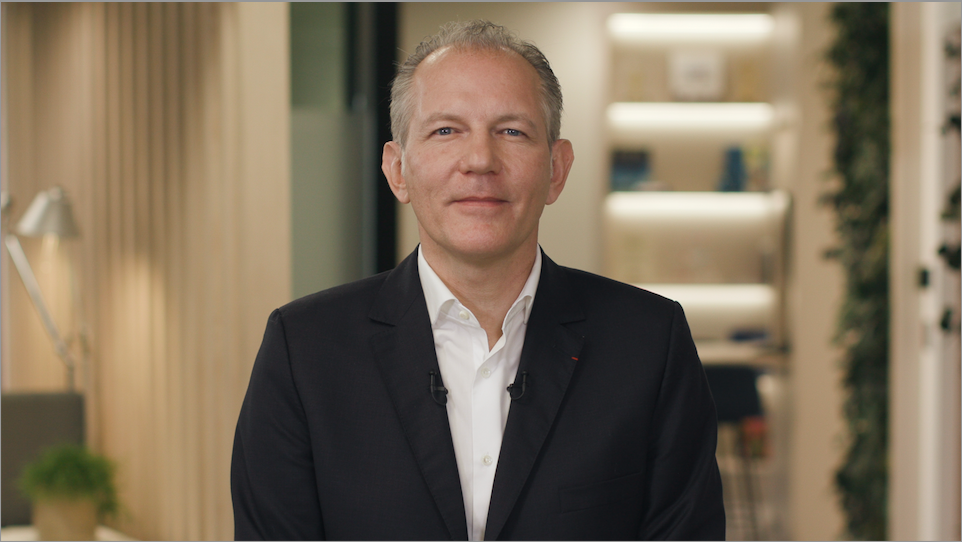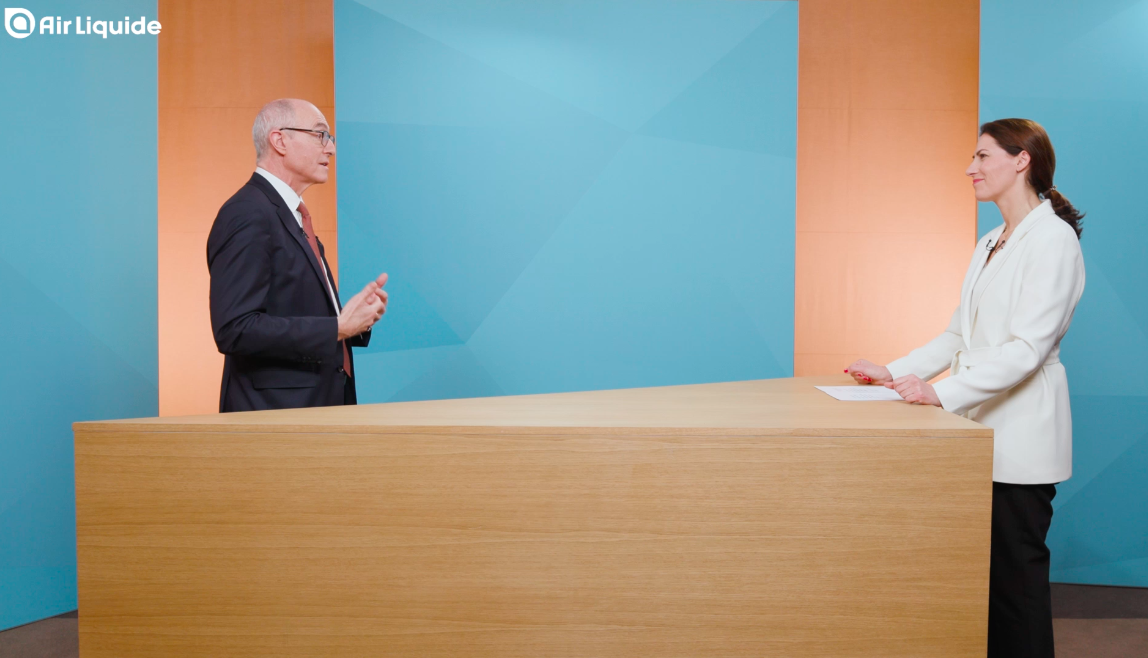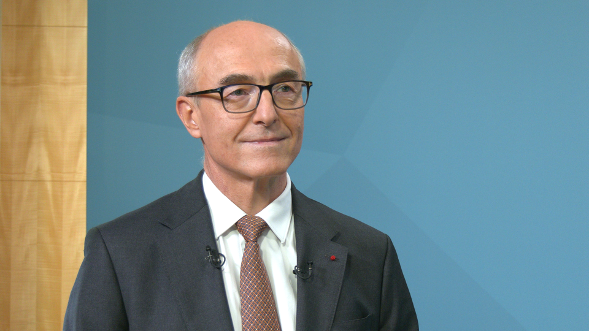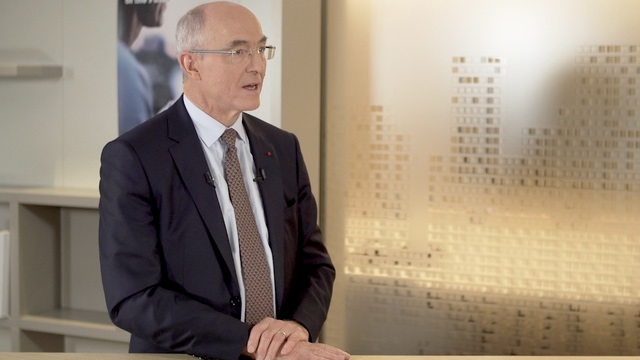EuroBusiness Media (EBM): Benoît Potier, welcome. You are the Chairman and CEO of Air Liquide. Today you are announcing your results for fiscal year 2016. What were the highlights of the year?
Benoît Potier: Of course, the Airgas acquisition was the major event of the past year. The acquisition marks a major step forward not only towards expanding our geographical footprint, but also towards penetrating new markets. It will bolster our presence in the United States, the world’s largest industrial gas market. We successfully completed the acquisition in under a year, from the deal closing on May 23, the refinancing process, the asset disposals, to the operational merger completion on October 1, and the first synergies.
Our teams have been dedicated throughout, and the integration process is going very well. We are already seeing the early synergies.
EBM: With regard to the refinancing, you opted to finance two-thirds with debt and one-third with equity. Why reach out to shareholders at a time when debt is so cheap?
Benoît Potier: Of course, debt is cheap. However, what we wanted to do first and foremost was to maintain a strong balance sheet with a reasonable debt-to-equity ratio and that, as a result, gives us an “A” rating, which is very important to us especially due to the long-term nature of contracts in our business—contracts that require our customers’ confidence. If we have a good rating, that clearly puts us in a better position.
And the second point was the role of shareholders as investors. In broad terms, we wanted our shareholders to take part in this acquisition. This is somewhat unique on the French market because, as you pointed out, debt is cheap. I feel that keeping a balance between equity financing, to involve our shareholders, and debt financing is what Air Liquide hopes to achieve over the long term.
EBM: 2016 also saw the rollout of your company program for 2016–2020, “NEOS” . What are the program’s main guidelines?
Benoît Potier: Yes, NEOS was the second major highlight of the year. It is a business transformation program that places the customer at the center of our strategy. We are seeing that, to an increasing extent, customers are shaping major trends through their behavior. Which is why we wanted to first identify the major trends. We are talking about the energy and environment transition, the changes in Healthcare, and digitization. These three trends will be three additional growth drivers for Air Liquide, and they will also create efficiencies for the company. This transformation will involve targeted industrial investments, digital development, and continued innovation. NEOS also sets some ambitious growth targets in terms of performance and responsibility, which I feel is another area we tried to emphasize when we were developing the program.
EBM: - 2016 was marked by the Airgas acquisition and a new business transformation program (NEOS), which makes it a major year in terms of strategy. What about operations? How did the year go?
Benoît Potier: Performance was solid. In 2016 we signed new contracts and invested around €2 billion, including in promising markets, and we continued to innovate. The company’s performance, which includes Airgas for part of the year, was solid. We posted increases in revenue, net income, and net earnings per share, despite negative currency and energy price impacts. We are reporting total revenue of €18.1 billion. The growth was driven by the Airgas acquisition and by higher volumes in Large Industries, strong performance in Healthcare, and growth on new markets addressed by our Global Markets & Technologies new entity.
From a geographical standpoint, all regions are seeing growth in 2016, on a comparable basis. Growth was also good in developing economies.
EBM: Would you mind specifically addressing the Industrial Merchant business line, which is Airgas’ business?
Benoît Potier: Yes. Well, with Airgas, obviously Industrial Merchant business was up 45%. However, Industrial Merchant, on a comparable basis, was down slightly -1.6%. The situation differs in the countries and industries we serve. Here are a few examples: Europe was stable; growth in China was solid; North America, on the other hand, was affected by fairly slow business in manufacturing. However, demand remained solid in other sectors, like food, beverages, and pharmaceuticals.
EBM: So, let’s take a step back, if you don’t mind, to talk about the company as a whole. How did the 2016 activity translate into your P&L?
Benoît Potier: Beyond our revenue, we continued to increase efficiency gains, with €315 million in 2016, which is in line with our NEOS program targets. In addition, there were $45 million in cost synergies tied to Airgas, also in line with our forecasts. With all of this, our operating income recurring was up nearly 6%, our cash flow was robust and, combined with the capital increase, it brought our debt ratio down to 90% at end-2016, which was ahead of our forecasts. These good results will also put us in a position to propose a new dividend increase in 2017.
EBM: If I understand you correctly, the Airgas acquisition had an immediate impact on revenue and a positive impact on net income and earnings per share?
Benoît Potier: Absolutely. And even when you factor in the costs of the acquisition and capital increase, the acquisition was accretive, both in terms of net income and net earnings per share.
EBM: Performance was solid in 2016. How is 2017 looking? How confident are you in the medium-term?
Benoît Potier: With regard to 2017, the geopolitical environment remains uncertain. We have had some major events like Brexit, the elections in the United States, and upcoming elections in Europe. Therefore, overall, a new equilibrium will have to be found. We also saw a mix of currency and energy price impacts that were negative in 2016 but that turned around in the fourth quarter. They should be positive in 2017. Inflation remains low worldwide. And, this is an important point concerning the fourth quarter, the industrial production index improved at the end of 2016.
EBM: And for Air Liquide?
Benoît Potier: For Air Liquide, our fundamentals are solid for 2017 and the years to come. First of all, in terms of investment. We currently have a €2—€2.1 billion investment backlog. These projects are being implemented now and will ensure our growth in the future.
The second factor is our debt ratio, which is under control given the acquisition we recently completed.
Finally, we want to bring our ROCE above 10% within five to six years. Currently, our after-tax ROCE is around 7.8%.
A second point is that the company is undergoing its transformation. It is essentially a customer-centric transformation with a sharp focus on digitization, starting with introducing sensors and digital technology to existing assets. And then there is the customer, with the transaction around the customer. Finally, you have the ecosystem of networks, both internal and external.
Overall, we are very confident in our medium-term growth prospects. Our fundamentals are solid, the transformation is underway, and employee commitment is high. These three factors are the cornerstone of our growth. Our goal remains to create value over the long term for all of our stakeholders.
EBM: And finally, you were in Davos a few weeks ago, where you announced the launch of the new Hydrogen Council. Can you tell us about this initiative?
Benoît Potier: Over the past few months, the initiative has really taken shape. We had already been working individually with a number of the parties involved. We felt that Davos was a good place to launch a global initiative spanning multiple industries, technology, and markets with these partners. This is one of the first initiatives on hydrogen energy, because we feel that hydrogen is one of the key solutions to the energy transition for the future. And that is the message we wanted to send with this initiative.
EBM: Benoît Potier, Chairman and CEO of Air Liquide, thank you very much.
Benoît Potier: Thank you.





